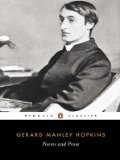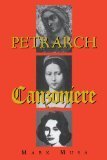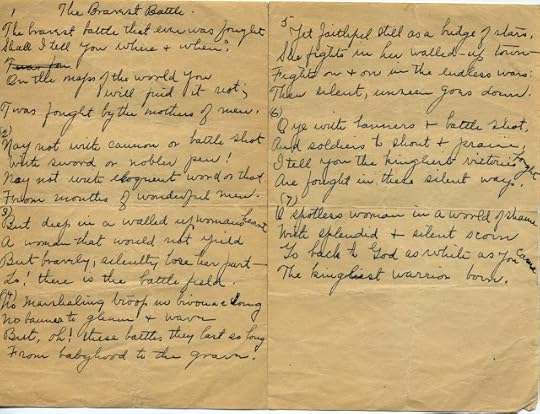Patrick Kanouse's Blog, page 53
August 29, 2011
Interview: Let's Talk Computers Air Date
 The interview for Let's Talk Computers airs on September 3rd. You can listen to the original broadcast on these stations. I will post the Internet version when it is available.
The interview for Let's Talk Computers airs on September 3rd. You can listen to the original broadcast on these stations. I will post the Internet version when it is available.
Buy here!
Published on August 29, 2011 06:00
August 25, 2011
That Quote Is From.... #8
That Shakespearen insult "Anointed sovereign of sighs and groans"is from Love's Labour's Lost, Act III, Scene 1. Here's the larger context:

Biron. And I, forsooth, in love! I, that have been love's whip;
A very beadle to a humorous sigh;
A critic, nay, a night-watch constable;
A domineering pedant o'er the boy;
Than whom no mortal so magnificent!
This whimpled, whining, purblind, wayward boy;
This senior-junior, giant-dwarf, Dan Cupid;
Regent of love-rhymes, lord of folded arms,
The anointed sovereign of sighs and groans,
Liege of all loiterers and malcontents,
Dread prince of plackets, king of codpieces,
Sole imperator and great general
Of trotting 'paritors:--O my little heart:--
And I to be a corporal of his field,
And wear his colours like a tumbler's hoop!
What, I! I love! I sue! I seek a wife!
Published on August 25, 2011 06:00
August 18, 2011
Shakespeare Insult: #8
 Here is the next Shakespearean insult in a series:
Here is the next Shakespearean insult in a series:"Anointed sovereign of sighs and groans"
Can you name the play, act, scene, and speaker?
Published on August 18, 2011 06:00
August 12, 2011
Interview on Let's Talk Computers
 Yesterday, I had the good fortune of being interviewed by Alan Ashendorf for his radio show
Let's Talk Computers
. We talked a lot about the NOOK Color, so look for more information about the broadcasts of that interview.
Yesterday, I had the good fortune of being interviewed by Alan Ashendorf for his radio show
Let's Talk Computers
. We talked a lot about the NOOK Color, so look for more information about the broadcasts of that interview.
Buy here!
Published on August 12, 2011 04:56
August 8, 2011
The NOOK Book, Second Edition
Published on August 08, 2011 06:00
August 2, 2011
Space-Time and Yarn
 I was watching Michio Kaku's "How to Travel Through Time" episode of his
Sci Fi Science
. I couldn't help but think of my wife, Gina, and her passion for knitting when Dr. Kaku used yarn to illustrate Einstein's General Theory of Relativity and how it relates to space-time.
I was watching Michio Kaku's "How to Travel Through Time" episode of his
Sci Fi Science
. I couldn't help but think of my wife, Gina, and her passion for knitting when Dr. Kaku used yarn to illustrate Einstein's General Theory of Relativity and how it relates to space-time.
Published on August 02, 2011 06:00
July 28, 2011
Happy Birthday Gerard Manley Hopkins

 Today is the birthday of Gerard Manley Hopkins, born in 1844. Hopkins was an early influence on my poetry, a poet that I read and immediately understood that poetry could be so much more than what I had learned in high school. Here was a poetry that was breathtakingly devoted to the sound of English--sometimes at the expense of comprehension and that was OK. Hopkins' poetry sometimes puts people off because of its religious nature. If one can listen to religious music or visit religious sites and art, then I see no difference about approaching a religious poetry (though I could argue that the disparity in comfort between listening to Bach's Masses or Passions or St. Peter's in the Vatican may be due to language's more interior and direct effect on us). Hopkins' best poetry is a poetry of mysticism, of the dark night of the soul, where doubt feeds the searching.
Today is the birthday of Gerard Manley Hopkins, born in 1844. Hopkins was an early influence on my poetry, a poet that I read and immediately understood that poetry could be so much more than what I had learned in high school. Here was a poetry that was breathtakingly devoted to the sound of English--sometimes at the expense of comprehension and that was OK. Hopkins' poetry sometimes puts people off because of its religious nature. If one can listen to religious music or visit religious sites and art, then I see no difference about approaching a religious poetry (though I could argue that the disparity in comfort between listening to Bach's Masses or Passions or St. Peter's in the Vatican may be due to language's more interior and direct effect on us). Hopkins' best poetry is a poetry of mysticism, of the dark night of the soul, where doubt feeds the searching.Here's a link to a blog from 2009 that features Stanley Kunitz reading a Hopkins poem and Charles Wright reading his poem about visiting Hopkins' grave in Dublin.
Published on July 28, 2011 06:00
July 26, 2011
That Quote Is From.... #7
That Shakespearen insult "Thou crusty botch of nature" is from Troilus and Cressida, Act V, Scene 1. Here's the larger context:

ACHILLES. How now, thou core of envy!
Thou crusty batch of nature, what's the news?
THERSITES. Why, thou picture of what thou seemest, and idol of
idiot worshippers, here's a letter for thee.
ACHILLES. From whence, fragment?
THERSITES. Why, thou full dish of fool, from Troy.
Published on July 26, 2011 06:00
July 21, 2011
Petrarch

I was re-reading some of Mark Musa's and Barbara Manfredi's translations of Petrarch's The Canzoniere, or Rerum vulgarium fragmenta
 . This translation with copious notes is a delight and I recommend it.
. This translation with copious notes is a delight and I recommend it.Two passages struck me as I was reading them. I stopped at the end of each and re-read them, and they've hung with me for days now, foregrounding in my mind multiple times. I leave it at that, and now simply share these passages:
 Lines from Petrarch 118:
Lines from Petrarch 118:Or qui son, lasso, et voglio esser altrove,
et vorrei più volere, et più non voglio,
et per più non poter fo quant' io posso.
I'm here, alas, and wish that I were elsewhere,
And wish that I wished more but wish no more,
And unable to do more, do all I can.
From 119:
Questa in penseri in opre et in parole,
però ch' è de le cose al mondo rade,
questa per mille strade
sempre inanzi mi fu leggiadra altera.
Solo per lei tornai da quel ch' i' era;
poi ch' i' soffersi gli occhi suoi da presso
per suo amor m'er' io messo
a faticosa impresa assai per tempo,
tal che s' i' arrivo al disiato porto
sper per lei gran tempo
viver, quand' altri mi terrà per morto.
She, in my thoughts, my work, and in my words,
As one of those rare things in the world,
Along a thousand roads
Was always there to lead me proud and lovely.
For her alone I turned from what I was;
Once able to look straight into her eyes,
For love of her I put
Myself to doing hard work very early,
So if I reach the port of my desire
I hope through her to live
Long after people think that I am dead.
Published on July 21, 2011 06:00
July 19, 2011
"Found" Poem

On July 4th weekend, Gina and I spent a very nice day with my parents. We grilled out and talked a lot. On a pie safe, my Mom had an obviously old book. Turns out, this was a book of sorts kept by my family on my mother's side. It reaches back into the late 1800s at least, but to call it a book is a misnomer. I'd call it, for lack of a better term, a commonplace book. It's full of recipes, jottings about sales and purchases, scribbles of unknown provenance. In the same book, it mentions the death of a child and record multiple times the cost of a milkshake. It's a book I had not problem becoming absorbed into with its intricacies and oddities.
Two loose (and not part of the original bound book) contained the poem pictured. With the wonders of the Internet, I googled the first lines and discovered that it was a poem titled "Motherhood," written by Joaquin Miller, who, interestingly, had Indiana roots.
It is hard to know why this poem was copied out; in fact, that answer is unknowable. Speculation suggests that it was copied by someone and given to the owner of this book or a member of this family for comfort or reflection. Or some member of the family wrote it out for contemplation, reflection, or comfort.
Below is the text of the poem, and I've marked in red text any word deviations (I didn't mark punctuation deviations). Not that it has much relevance, though I think it casts an interesting light on how texts can alter subtly over time (think Shakespearean editions of plays that contend with good and bad quartos, conjectures about the availability of foul papers, and the first folio).
As to the poem itself, I think it clearly shows the hallmarks of middling late 1800s verse and not one that I would attribute any distinction to except for the fact that it was copied out and ended up in a commonplace book on my Mother's pie safe.
Motherhood
The bravest battle that ever was fought!
Shall I tell you where and when?
On the maps of the world you will find it not;
'Twas fought by the mothers of men.
Nay not with the cannon of battle-shot,
With a sword or noble pen;
Nay, not with eloquent words or thought
From mouth of wonderful men!
But deep in a walled-up woman's heart
- Of a woman that would not yield,
But bravely, silently bore her part
- Lo, there is the battlefield!
No marshalling troops, no bivouac song,
No banner to gleam and wave;
But oh! those battles, they last so long -
From babyhood to the grave.
Yet, faithful still as a bridge of stars,
She fights in her walled-up town -
Fights on and on in her endless wars,
Then silent, unseen, goes down.
Oh, ye with banners and battle-shot,
And soldiers to shout and praise!
I tell you the kingliest victories fought
Were fought in those silent ways.
O spotless woman in a world of shame,
With splendid and silent scorn,
Go back to God as white as you came -
The Kingliest warrior born!
Published on July 19, 2011 06:00




